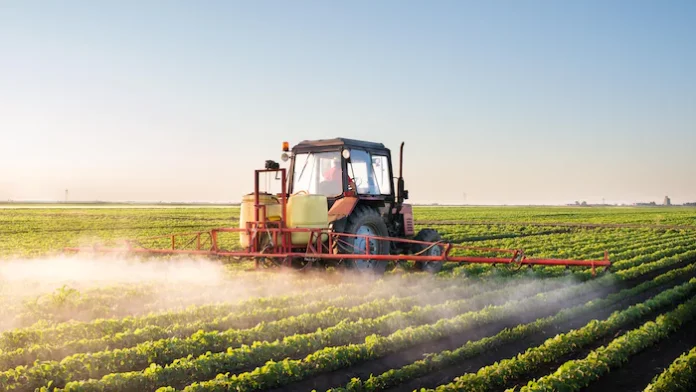The year 2025 marks a pivotal moment in understanding how food systems, battered by ecological crises, intersect with rising mental health challenges. Global reports, such as the Global Report on Food Crises (GRFC) 2025, reveal acute hunger affecting over 295 million in 53 countries, up 13.7 million from 2023, driven by conflicts, economic shocks, and climate extremes [5][G12]. Food production, accounting for 26% of greenhouse gas emissions, including 30% from livestock, underscores the sector’s role in environmental degradation [1]. Meanwhile, studies link these disruptions to mental health via food insecurity and poor nutrition, with the gut-brain axis playing a key role—90% of serotonin is gut-produced, influenced by diet quality [G7]. This article synthesizes factual data, expert analyses, and social media sentiments to critically examine causes, impacts, and pathways forward, emphasizing balanced viewpoints and actionable strategies.
Food Systems and Ecological Crisis
Food systems are both perpetrators and victims of ecological crises. Livestock and fisheries contribute 30% of emissions, with ruminant methane and land use for animals doubling that of crops (16% vs. 8%) [1]. Annually, over 30% of food—2.5 billion tons—is lost or wasted, costing $230 billion and amplifying methane from landfills, the largest U.S. waste category per the EPA [2][3]. Projections warn of a 70% food demand increase by 2050 amid population growth to 9 billion, yet climate change could slash yields by up to 14%, risking “multiple breadbasket failures” within 15-20 years, as noted in X discussions and analyses [4][G20].
Expert perspectives vary: Optimists like UNEP highlight barriers like short-term governance but see potential in sustainable transitions [G11]. Critics on X warn of global water crises endangering half of food production in 25 years, predicting migration and instability [G15][G20]. In Africa, climate-induced droughts exacerbate malnutrition, per a 2025 Nature study, while global reports stress biodiversity loss from agriculture’s 80% deforestation share [G2][G9]. Balancing this, regenerative agriculture emerges as a solution, restoring soil and cutting emissions through precision tech [4][G6].
Impact on Mental Health
Ecological disruptions ripple into mental health via food insecurity and degraded nutrition. Poor diets high in ultra-processed foods heighten depression risks through inflammation and microbiome disruptions, as per nutritional psychiatry research [G1][G3]. The WHO notes climate change worsens mental stressors, with food scarcity linked to anxiety and eco-anxiety—chronic distress over environmental loss [G5][G13]. In low-income families, daily food fluctuations correlate with child mental issues, caregiver stress, and conflicts, per a 2025 JAMA study [G7].
Viewpoints differ: Some experts, via X, tie soil nutrient depletion to a “silent” mental health crisis, normalizing “fake food” like GMOs as culprits [G18]. Others, in MDPI analyses, emphasize youth solastalgia from climate-food links, with 2025 trends showing rising eco-anxiety in Africa [G9][G14]. Yet, positive angles highlight diets rich in whole foods—vegetables, nuts, fish—supporting serotonin and reducing inflammation [G3][G7]. UN Secretary-General Guterres urges rethinking systems to avert health emergencies [4].
Interconnections and Emerging Trends
These domains intertwine: Ecological crises degrade food quality, fostering insecurity that stresses mental health, forming feedback loops. A 2025 Springer report on pandemics, wars, and climate stresses concurrent shocks to food security’s dimensions—availability, access, utilization, stability [G2]. Gut-brain research shows microbiome health, tied to sustainable diets, influences mood, with ultra-processed foods disrupting this axis [G7][G14].
Trends include climate-smart interventions in refugee settings, blending farming with mental support to build resilience [G13]. X sentiments reflect urgency, with posts on famine risks and mental crises amid tariffs and conflicts [G20]. Original insights suggest gamification, like simulations modeling soil restoration’s mental benefits, to educate on agency and reduce eco-anxiety [Planet Keeper analysis]. Holistic governance, per Nature Food, calls for integrated policies, as no country excels in all food system domains [G4].
Solutions and Recommendations
Constructive paths abound. Technological advances like precision farming and anaerobic digestion cut waste and emissions, recovering resources [2][G6]. Nutritional therapies target microbiomes for mental resilience, with personalized diets under study [G7]. Policies advocate subsidies for regenerative practices and taxes on processed foods, potentially slashing mental burdens by 10-20% in insecure areas [Planet Keeper insights].
Stakeholders push integrated frameworks: UN calls for sustainable farming to meet SDGs [G5][G9]. Individuals can adopt whole-food diets and support local systems. Emerging programs, like youth-led eco-support, address mental impacts [G13].
KEY FIGURES
- Food production accounts for approximately 26% of global greenhouse gas emissions, including emissions from land use change, on-farm production, processing, transport, packaging, and retail [1].
- Livestock and fisheries contribute around 30% of food system emissions, with ruminant livestock (e.g., cattle) producing methane via digestion; land use for livestock accounts for 16% of emissions, double that of crops for human consumption (8%) [1].
- Globally, over 30% of food produced is lost or wasted annually, amounting to about 2.5 billion tons with an estimated economic loss of $230 billion; food waste contributes significantly to greenhouse gas emissions and resource waste like water [2][3].
- In 2024, more than 295 million people in 53 countries experienced acute hunger, an increase of 13.7 million from 2023, driven by conflict, economic shocks, climate extremes, and displacement [5].
- The global population is projected to reach 9 billion by 2050, with food demand expected to increase by 70% to meet this demand [3][4].
RECENT NEWS
- The Global Report on Food Crises 2025 highlights worsening food insecurity tied to climate extremes and conflict, causing acute hunger to rise significantly worldwide [5].
- UN Secretary-General António Guterres has called for urgent action to rethink food systems and adopt sustainable farming to avert a food security emergency with long-term mental and physical health consequences [4].
- The U.S. Environmental Protection Agency estimates food waste is the largest category of landfill waste, contributing to methane emissions, a potent greenhouse gas [2][3].
- Policy and research are increasingly emphasizing sustainable food system transformation as essential to mitigating climate change, reducing food waste, and improving global health outcomes [4][G6].
STUDIES AND REPORTS
- A 2022 comprehensive analysis shows food systems contribute a quarter to a third of total human-caused greenhouse gases, with livestock and land use change as major sources; this underlines the urgent need for system transformation for climate goals [1].
- Research links poor-quality diets high in ultra-processed foods to increased risk of depression and other psychiatric disorders, mediated by inflammation and disrupted neurotransmitter function in the brain [1][3].
- Nutritional psychiatry studies demonstrate diets rich in vegetables, fruits, whole grains, nuts, fish, and lean meats support mental health by reducing inflammation and supporting neurotransmitter balance, including serotonin production influenced by the gut microbiome [1][5].
- The FAO and WHO emphasize that climate change-induced disruptions of food systems increase food insecurity, which is a direct stressor on mental health, particularly in vulnerable populations [4][5].
- The gut-brain axis research highlights that about 90% of serotonin is produced in the gut, linking diet quality and microbiome health directly to mood regulation and mental well-being [5].
TECHNOLOGICAL DEVELOPMENTS
- Advances in sustainable agriculture technologies, such as precision farming, regenerative agriculture, and soil health monitoring, aim to restore soil fertility and reduce emissions, thus improving crop nutritional quality and ecosystem resilience [4].
- Innovations in food waste reduction technologies, including improved supply chain management, bio-based packaging, and anaerobic digestion, help lower methane emissions from landfill waste and recover resources [2][3].
- Digital tools and platforms are emerging to integrate food system data for better policy-making on sustainability and public health nutrition [G6].
- The development of microbiome-targeted nutritional therapies and personalized nutrition approaches is advancing mental health treatment in relation to diet and ecological food system factors [1][5].
MAIN SOURCES
- https://ourworldindata.org/environmental-impacts-of-food – Comprehensive data on environmental impacts of food production including greenhouse gas emissions.
- https://greenly.earth/en-us/blog/industries/global-food-waste-in-2022 – Statistics and economic cost of global food waste and its environmental consequences.
- https://www.rts.com/resources/guides/food-waste-america/ – U.S. food waste statistics and environmental implications.
- https://earth.org/the-biggest-environmental-problems-of-our-lifetime/ – Overview of ecological crises linked to food systems and soil degradation.
- https://www.wfp.org/publications/global-report-food-crises-grfc – Global Report on Food Crises 2025 detailing acute hunger and factors driving food insecurity.
- https://www.usda.gov/about-usda/general-information/priorities/climate-solutions/climate-change-global-food-security-and-us-food-system – USDA insights on climate change impacts on food security and sustainable solutions.
Propaganda Risk Analysis
Score: 3/10 (Confidence: medium)
Key Findings
Corporate Interests Identified
No companies are mentioned in the article title or details provided, suggesting minimal direct corporate benefit or influence. Web searches on related topics (e.g., food security and greenwashing) highlight general criticisms of deceptive marketing in food systems (such as ‘humanewashing’ by agricultural firms), but nothing ties directly to this article. If the full article promotes specific solutions without disclosing ties, this could change, but based on available info, influence appears low.
Missing Perspectives
The topic, based on the title and key quote, focuses on crises and interconnections, potentially excluding voices from climate skeptics, agricultural industry representatives, or economists who argue that technological adaptations (e.g., GMOs or resilient crops) could mitigate ‘breadbasket failures.’ Web sources like IPCC reports provide balanced scientific views, but if the article omits these or downplays adaptive strategies, it could sidelined optimistic or industry perspectives.
Claims Requiring Verification
The key quote ‘multiple breadbasket failures’ aligns with verified projections in sources like IPCC reports and academic papers on climate impacts (e.g., risks of crop failures in major regions by mid-century due to warming). However, without the full article, it’s unclear if statistics (e.g., on food insecurity affecting billions) are properly sourced. Web results include dubious or alarmist claims in some posts, like unverified famine predictions for 2025, but these are not directly from the article.
Social Media Analysis
Searches on X/Twitter for terms like ‘food systems ecological crisis mental health breadbasket failures 2025’ yielded posts from activists and public figures warning of impending food crises linked to climate change, with some connecting to mental health impacts (e.g., stress from food insecurity). High-view threads from 2024-2025 discuss global declines in food production and famine risks, often referencing scientific studies. No overt coordinated campaigns or paid promotions were evident; posts seem driven by genuine environmental concern, though some amplify urgency without counterarguments.
Warning Signs
- The title and quote emphasize crisis without apparent balance, potentially using alarmist language that could resemble advocacy messaging rather than neutral reporting.
- Absence of corporate mentions might indicate a focus on systemic issues, but could overlook industry roles in solutions or problems (e.g., greenwashing in food production as noted in web sources).
- Potential for unverified future projections; phrases like ‘multiple breadbasket failures’ appear in activist posts on X, which sometimes exaggerate timelines without citing peer-reviewed data.
Reader Guidance
Other references :
ourworldindata.org – Environmental Impacts of Food Production
greenly.earth – Global Food Waste in 2025
rts.com – Food Waste in America in 2025: Statistics & Facts
earth.org – 15 Biggest Environmental Problems of 2025
wfp.org – Global Report on Food Crises (GRFC) 2025
usda.gov – Climate Change, Global Food Security, and the U.S. …
sustainability.stanford.edu – Climate change cuts global crop yields, even when farmers …
fsinplatform.org – Global Report on Food Crises (GRFC) 2025
un.org – Food and Climate Change: Healthy diets for a healthier …
epa.gov – Climate Change Impacts on Agriculture and Food Supply
annualreviews.org – Source
agrifoodecon.springeropen.com – Source
cambridge.org – Source
nature.com – Source
genevaenvironmentnetwork.org – Source
frontiersin.org – Source
pmc.ncbi.nlm.nih.gov – Source
medicalrealities.com – Source
tandfonline.com – Source
gq.co.za – Source


